Iran’s President Raisi To Attend UN General Assembly In September
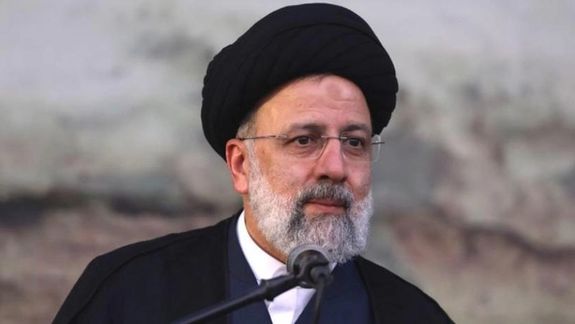
Iranian President Ebrahim Raisi is slated to travel to New York for the 77th session of the UN General Assembly in September, his first since he did not attend the event last year.

Iranian President Ebrahim Raisi is slated to travel to New York for the 77th session of the UN General Assembly in September, his first since he did not attend the event last year.
In his weekly press conference on Tuesday, Iranian government spokesman Ali Bahadori Jahromi said that preliminary plans have been made for Raisi’s participation in the United Nations annual gathering.
The UNGA 77 is scheduled to open on September 13 in New York, and the first day of the high-level General Debate will be on 20 September. On the agenda of this year’s event are a meeting to mark the commemoration of the 30th anniversary of the adoption of the Declaration on the Rights of Persons Belonging to National or Ethnic, Religious and Linguistic Minorities on September 21 and a plenary meeting to commemorate the International Day for the Total Elimination of Nuclear Weapons on September 26.
Raisi – who is on the US and European sanctions list -- did not attend the high-level summit in the previous year, and only delivered a video speech.
He is probably among the most controversial among the Islamic Republic presidents to attend the General Assembly as he was a member of a "death committee" that issued orders to kill political prisoners in 1988. A witness in the Swedish trial of Hamid Noury (Nouri), an ex-judicial official and jailor, over alleged involvement in Iran’s 1988 prison executions named Raisi as one of the officials directly involved in the massacre.
Earlier in the year, prominent former UN officials called for a UN investigation into the 1988 "massacre" of political prisoners in Iran, including Raisi’s role, at that time.
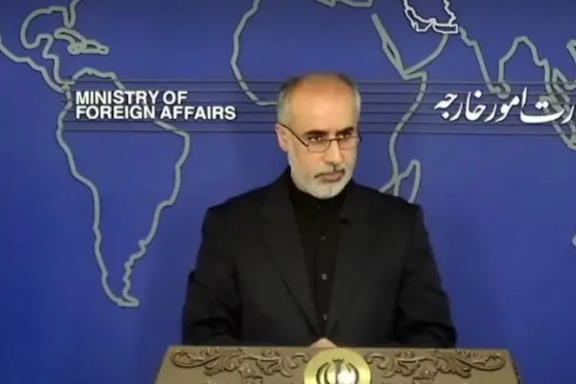
Iran says the US move to impose fresh sanctions at a time when Iranian people have suffered heavy damage and losses because of recent floods proves that their sympathy is mere hypocrisy.
Foreign Ministry spokesman Nasser Kanaani made the remarks on Tuesday, a day after US Treasury and State Department imposed sanctions on six companies, four based in Hong Kong, one in Singapore, and one in the United Arab Emirates (UAE).
The companies were subjected to sanctions over their links with Iran's government-owned Persian Gulf Petrochemical Industry Commercial company. The Treasury also blacklisted Glory Harvest LPG Tanker for links to Iran. The US said the firms have helped Iran sell tens of millions of dollars in oil and petrochemical products to East Asian countries.
Kanaani was referring to a recent message of condolences by US Special Envoy for Iran Robert Malley who expressed sympathy with the victims and their loved ones affected by the devastating flash floods and landslides throughout Iran.
The Iranian spokesman added that the current US administration’s attitude towards the Islamic Republic does not differ from its predecessor, despite the fact that it has repeatedly dismissed Trump administration’s “maximum pressure” campaign against Iran as a failure.
Despite 16 months of negotiations to revive the JCPOA, Iran has not accepted a proposal, which the US says is on the table. After lax enforcement of sanctions since early 2021, Washington has signaled a new approach.
Kanaani said that the White House’s addiction to imposing sanctions and using them as political leverage exposes the United States’ “imperialistic nature.”
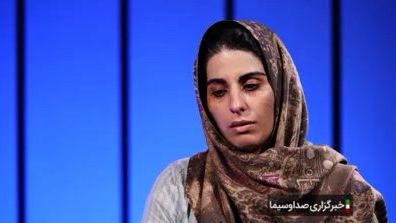
Iranian activists have taken to social media to condemn the state-run television for airing ‘forced confessions’ of a detained anti-hijab protester last week.
The state-run television (IRIB) on Sundayaired the so-called ‘confessions’ of Sepideh Rashno, a 28-year-old artist, writer and editor, who was arrested on July 16, after a video of her quarrel with a woman enforcing hijab rules – identified as Rayeheh Rabi’i -- went viral.
In the video Rabi’i, who was fully covered by a long, black ‘chador’ – which is typical of the supporters of the Islamic Republic – is seen shouting at Rashno who had unveiled in a city bus. The quarrel became so frantic that other passengers intervened and kicked the hijab enforcer out of the bus.
Iran’s state media and media outlets affiliated with the Revolutionary Guards (IRGC) have been publishing videos of forced confessions from women who are arrested over their participation in an ongoing anti-hijab campaign.
In the forced confession under detention shown by the IRIB Sunday, Rashno says she regrets her confrontation with the hijab enforcer and posting her video on social media and that she “begged” US-based anti-hijab activist Masih Alinejad to remove the video of the encounter from social media.
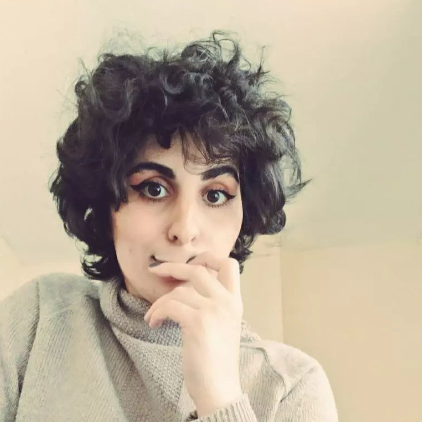
Rashno has reportedly been in detention at the IRGC ward of Tehran’s Evin Prison since her arrest without any contact with her family or access to a lawyer.
In a tweet Sunday, Alinejad alleged that Rashno was tortured and forced to denounce herself and speak against her. “She’s a hero fighting for freedom for all women, for our dignity. I call on the international community to support Sepideh Reshnou,” Alinejad wrote.
While all these were taking place, a man was arrested outside Alinejad's home in Brooklyn, NY with a loaded AK-47 assault rifle, after being seen loitering for two days and trying to get into her home.
Social media users have pointed out that in the video aired Sunday Rashnou appears to be wearing a heavy layer of makeup to cover up bruises on her face, particularly above her right eye, and looks very tired and worn out resulting from possible physical and psychological torture.
Armin Soleimani, journalist, in a tweet Sunday said by torturing Rashno and airing her ‘confession’ on the state television, authorities aimed at intimidating anti-hijab activists and protesters.
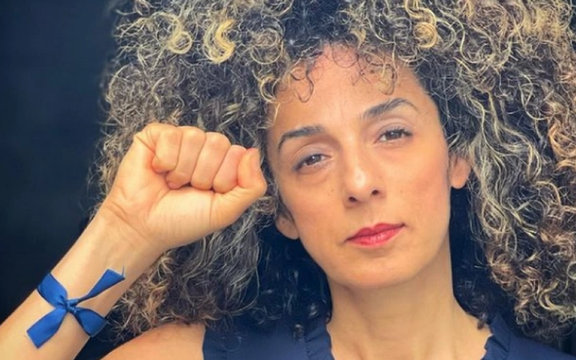
Iran’s Supreme Leader Ali Khamenei claimed last week that the anti-hijab movement is nothing but a Western plot against the Islamic Republic, adding that in his view the Islamic Republic does not need to defend itself about issues related to women including the hijab but should rather be aggressive and attack the West for turning women into a “commodity”.
Rights activists allege that the Islamic Republic systematically uses torture and broadcasts torture-tainted ‘confessions’ of activists, politicians, and even ordinary criminals against themselves and others on state television to intimidate their peers and the public.
“Such confessions may have worked in the early days of the revolution but fortunately has lost its [desired] impact now due to being repeatedly used for all sorts of things and have even made the incompetent security organs the butt of jokes,” Maziar (Mazyar) Ebrahimi, a businessman who was tortured to ‘confess’ that he had been spying for Israel and was involved in the assassination of Iranian nuclear scientists in 2012 tweeted about the airing of Rashno’s confessions.
On July 12, following a call by women’s rights activists for civil disobedience with the hashtag of ‘No2Hijab’ social media exploded with dozens of videos and photos of women unveiling in public.
Iran’s government which is now fully controlled by hardliners has adopted a harsher than usual approach in enforcing hijab in the streets and government affiliated institutions, amid economic crisis and hardship for tens of millions. Government and military officials have warned the population against disobeying hijab rules and the morality police hijab enforcement patrols have detained many women, sometimes violently, on the streets.
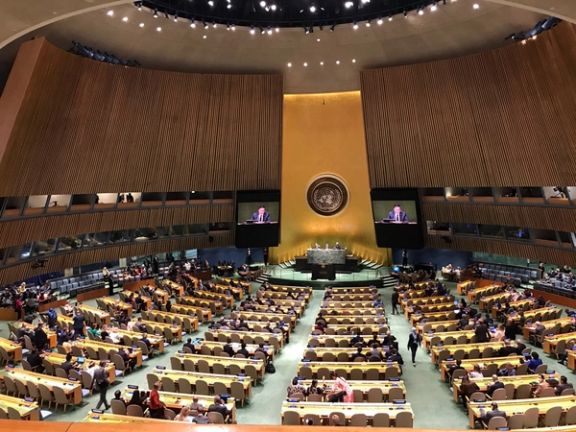
The United States, France, and the United Kingdom have reiterated their position that the Islamic Republic should never achieve the capability to build nuclear weapons.
In a ministerial statement released for the Tenth NPT Review Conference on Monday, the countries said the Nuclear Non-Proliferation Treaty has reduced the risk of a devastating nuclear war, and further reduction of that risk must be a priority for all NPT states parties and for this Review Conference.
Reiterating that Iran must never develop a nuclear weapon, the statement read, “We are committed to addressing regional proliferation crises wherever they arise.”
They expressed regret that, despite intense diplomatic efforts, Iran has yet to seize the opportunity to restore full implementation of the Joint Comprehensive Plan of Action (JCPOA), urging Tehran “to return to full implementation of the JCPOA and UNSCR 2231 and to cooperate on an urgent basis with the IAEA in resolving questions related to possible undeclared nuclear material and activities in Iran as required under its NPT-required safeguards agreement.”
“Nuclear weapons, for as long as they exist, should serve defensive purposes, deter aggression, and prevent war. We condemn those who would use or threaten to use nuclear weapons for military coercion, intimidation, and blackmail. Such actions are profoundly dangerous and contrary to the purposes of the NPT and the UN Charter.”
All NPT Parties, nuclear-weapon States or non-nuclear-weapon States, have a duty both to demonstrate and to promote responsible behavior and restraint to advance all three pillars of the treaty: disarmament, nonproliferation and peaceful uses of nuclear energy, science, and technology, they said.
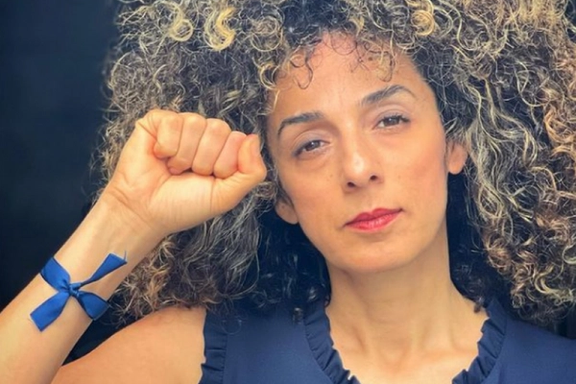
A number of former and current US officials have decried the Islamic Republic’s harassment of New York-based dissident journalist and women’s rights activist Masih Alinejad.
Senate Foreign Relations Committee Ranking Member Jim Risch (R-Idaho) described the continued Iranian harassment of Alinejad as “outrageous,” referring to the man armed with a loaded AK-47 who was arrested outside her Brooklyn home on Thursday.
Praising Alinejad’s unrelenting fight for the rights of Iranian women, he said, “Her steadfast commitment to fighting the Iranian regime and standing up for human rights should be an inspiration to us all.”
“I was honored to meet her last year after the Iranians attempted to kidnap her,” he added, referring to an international kidnapping plot orchestrated by Iran’s intelligence network last year.
White House national security spokesperson John Kirby also condemned the apparent attempt to harm the rights activist, saying that this is an open criminal investigation and “while we wait to see the results of this investigation, we want to reaffirm it is the first priority for President Joe Biden to counter threats posed by Iran.”
Echoing similar sentiments, former State Department Spokesperson Morgan Ortagus said on Sunday that “The Iranian regime is threatening to assassinate our leaders. Now their radical followers are stalking Iranian dissidents and trying to kill them here too."
Calling for travel restrictions against Iranian delegations’ visit to UN headquarters in New York and also for closure of Iran’s Interests Section in Pakistan's Embassy in DC, she said “There's no reason for this arrangement while the regime increases its assassination attempts on our soil.” “We need to kick all Iranian operatives and 'diplomats' out of America now.”
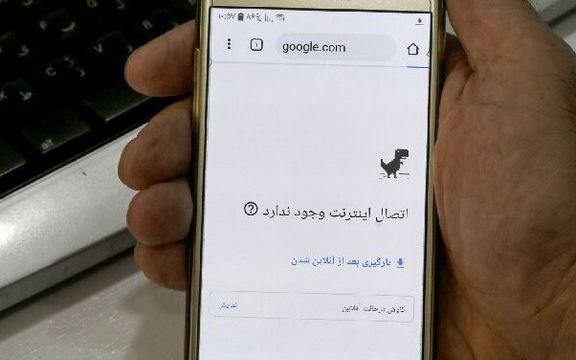
Following days of disruption in internet services in Iran and conflicting explanations by authorities, cyberspace watchdog NetBlocks has confirmed a loss in national connectivity.
NetBlocks, which monitors cybersecurity and the governance of the internet, said on Monday, “A significant internet outage has been registered in Iran affecting cellular and fixed-line services including Irancell and the TIC gateway; real-time network data show national connectivity at 79% of ordinary levels; incident ongoing.”
Iran’s Telecommunication Company announced that the widespread disruption was caused by a fire in one of the infrastructure facilities. A few days ago, the ministry of information and communications technology had blamed power fluctuations and out-of-date infrastructure at the country’s Electricity Distribution Company for the issue, a claim that the power company denied.
It is not clear what happened in Iran's internet distribution center that the authorities are perhaps trying to hide, but one of the Islamic Republic’s policies to cover up sabotages is obfuscation through conflicting statements that cannot be confirmed or denied.
Iran has been heavily censoring access to the Internet for the past 20 years to restrict citizens’ access to information. Many foreign and Iranian websites, including news media websites, are already blocked in Iran although controls are readily sidestepped by VPNs (virtual private networks) and anti-filtering software.
Since a few months ago, hardliners in the parliament are pushing to ratify a bill to further restrict internet and social media access, and reportedly launch a domestic intranet, whose content can be supervised.
Late in July, Iranians were outraged by a government move to forcibly activate Safe Search on Google for all citizens.